Malcolm Turnbull: A man of the people or the party?
- Published
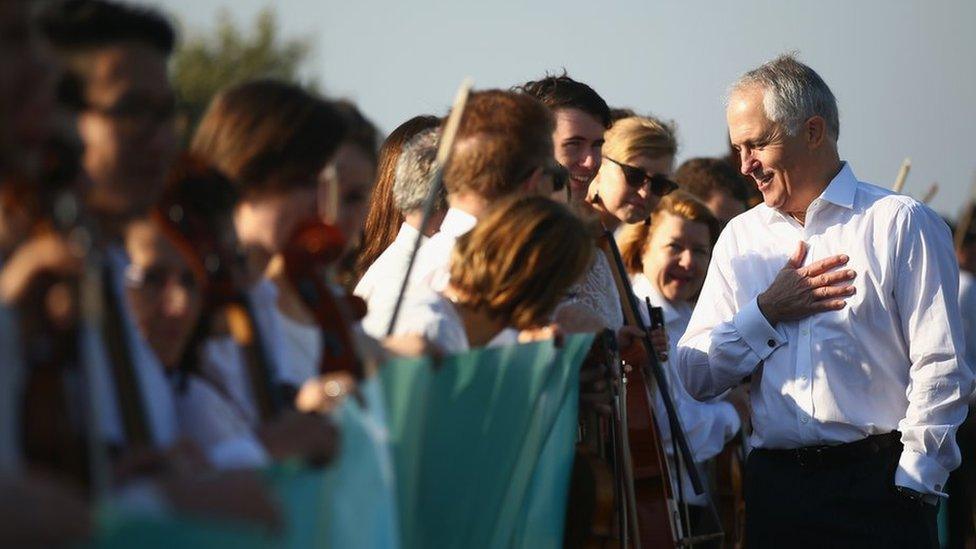
Many Australians are pinning their hopes on big policy changes under Mr Turnbull
Since his sudden ascension to power on Monday night, Malcolm Turnbull has offered the public only a sketchy outline of his vision for Australia.
His emphasis has been on developing an economic platform based on "freedom, the individual and the market".
But there are three other areas many voters are hoping he will act on - gay marriage, climate change and making Australia a republic.
All three are areas Mr Turnbull has spoken passionately about many times, putting him at odds with official Liberal Party policy.
Republicans, advocates of same-sex marriage, and those calling for tougher action to tackle climate change are all hopeful of an early shift in policy.
But deals Mr Turnbull has likely struck with some of his more conservative MPs mean current government policies prohibiting same-sex marriage, supporting the UK monarchy and decrying emissions trading or a carbon tax won't change any time soon.
Here is what the member for Wentworth has said in the past and what he is saying now:

Tying the knot
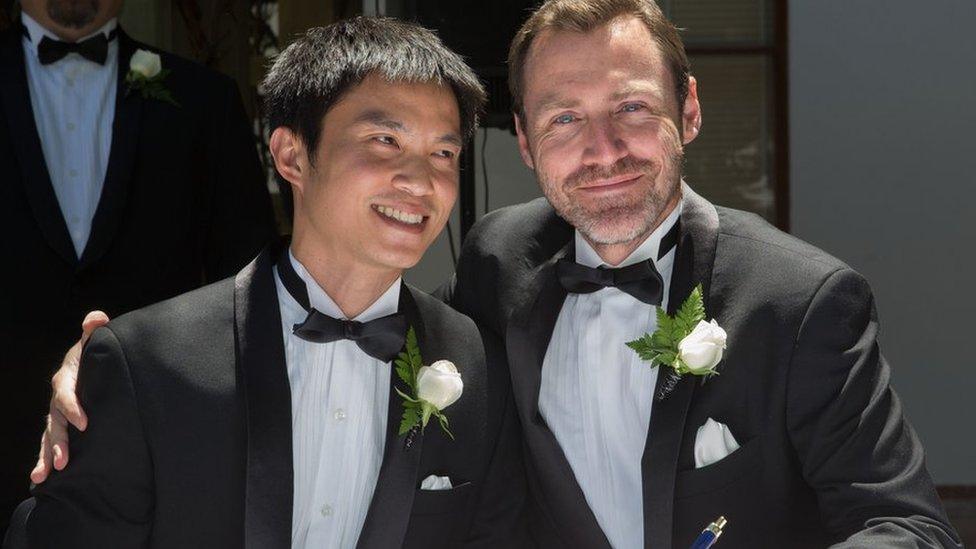
Many people in Mr Turnbull's Sydney electorate want gay marriage legalised
Mr Turnbull, who supports marriage equality, has previously voiced support for a free vote in parliament for MPs on any same-sex marriage bill.
He recently questioned the need for former prime minister Tony Abbott's proposal to hold a "people's vote" or plebiscite on the issue after the next general election.
"The reason I haven't advocated a plebiscite after the next election," he said last month, "is that it would mean, it will mean, that this issue is a live issue all the way up to the next election and, indeed, at the next election and, if we are returned to office, it will be a very live issue in the lead-up to the plebiscite itself."
However, in Parliament on Wednesday, he said the idea of holding a plebiscite, which the Australian Electoral Commission estimates would cost A$158m (£73m, $115m), was "thoroughly democratic" and a "legitimate and reasonable approach".
"Each approach has its advantages," he said.
"One, I suppose, is faster and costs less. The other one gives every Australian a say and it has a cost; democracy has a price.
"Giving everybody a say on an important issue is surely a very legitimate and reasonable approach."

Tilting at windmills
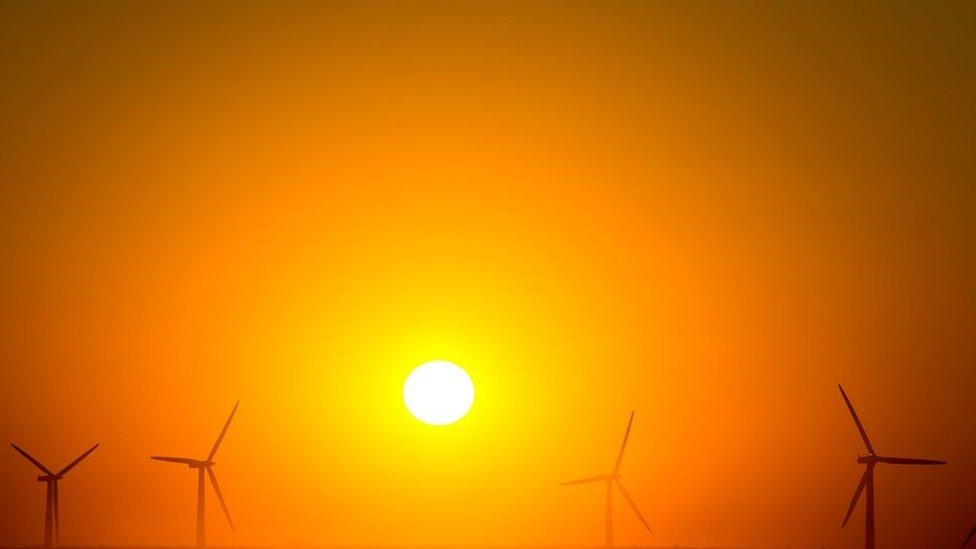
Renewable energy struggled to get a foothold in Australia under the Abbott government
A former environment minister and Parliamentary secretary for water, Mr Turnbull narrowly lost the leadership of the Liberal Party to Mr Abbott in 2009 in part because of his support for an emissions trading scheme.
He has never denied the science behind climate change and has been a strong supporter of using market mechanisms to send a signal to people to use less electricity and carbon-heavy resources.
As he said in 2010, Earth "is the only planet we've got".
"We know that the consequences of unchecked global warming would be catastrophic," he told an audience of renewable energy supporters.
"We know that extreme weather events are occurring with greater and greater frequency...we know that these trends are entirely consistent with the climate change forecasts, with the climate models that the scientists are relying on."
In contrast, not so many months earlier, in 2009, Mr Abbott famously told an audience in regional Victoria that the climate change argument was "absolute crap".
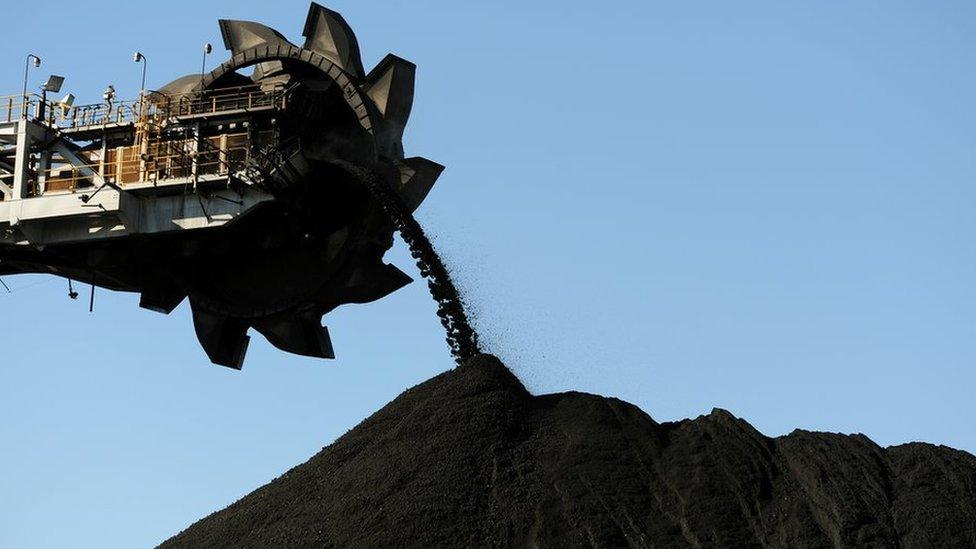
Coal is one of Australia's key exports
Mr Abbott has always been a fierce supporter of Australia's large fossil fuel industry, declaring last year that coal was "good for humanity" and "essential for the prosperity of the world".
Since his elevation to the prime minister's seat, Mr Turnbull has softened his rhetoric, describing the Abbott government's decision to tackle climate change without imposing any costs on carbon-polluting industries as "very, very good", arguing that if they cut emissions, "it does the job".
The problem is that analysts from business, environment and science circles broadly agree the current policies don't cut emissions.

Bending the knee
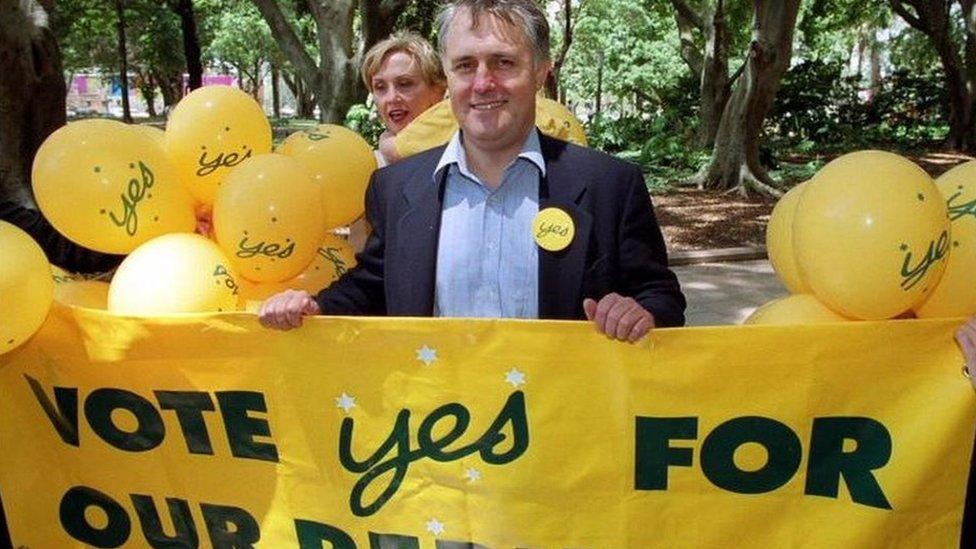
In earlier days, Mr Turnbull campaigned for a republic
Republicans are excited the former chairman of their movement is now prime minister but chances are, holding another referendum on whether Australia should cut ties with the British Royal family are not at the top of Mr Turnbull's do-do list.
The public face of the republican movement in the late 1990s, Mr Turnbull famously savaged his own Liberal leader, John Howard, as "the prime minister who broke this nation's heart" when a referendum to ditch the monarchy failed in 1999.
Since then, public interest in becoming a republic has waxed and waned.
In recent years, the popularity of the Duke and Duchess of Cambridge and their first-born, Prince George, has dampened enthusiasm for replacing the monarch with a president.
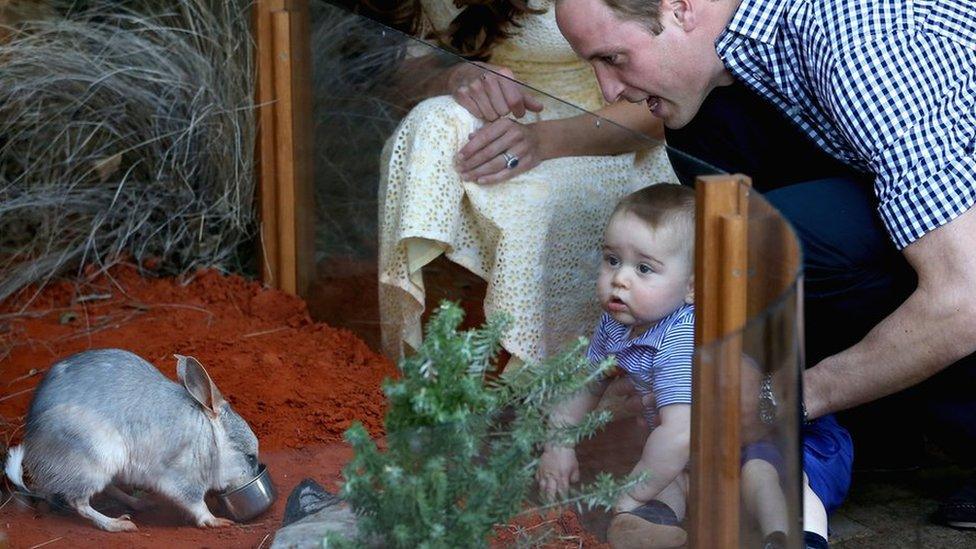
The "Republican slayer" was a big hit with the Australian public
When the couple visited Australia in 2014, pictures of a handsome baby George wriggling in his parents' arms or staring with wonder at an Australian bilby at Sydney's Taronga Zoo, led to the child being dubbed "the Republican slayer".
A public opinion poll commissioned at the time by major media group Fairfax found only 49% of Australians wanted a republic. That compared with a similar survey four years earlier that found 68% in favour of a republic.
The issue raised its stately head again this year, when Mr Abbott knighted Prince Philip on Australia Day.
It sparked outrage in some circles and the then-PM was mocked on social media for being out of touch with Australians.
Mr Turnbull blogged that he was often asked what he thought about the knighthood, writing diplomatically that Mr Abbott's decision was not without precedent and that most republics had some kind of honours system.
"Australian republicans should not lose too much sleep over the Prime Minister's decision," he said.
- Published14 September 2015
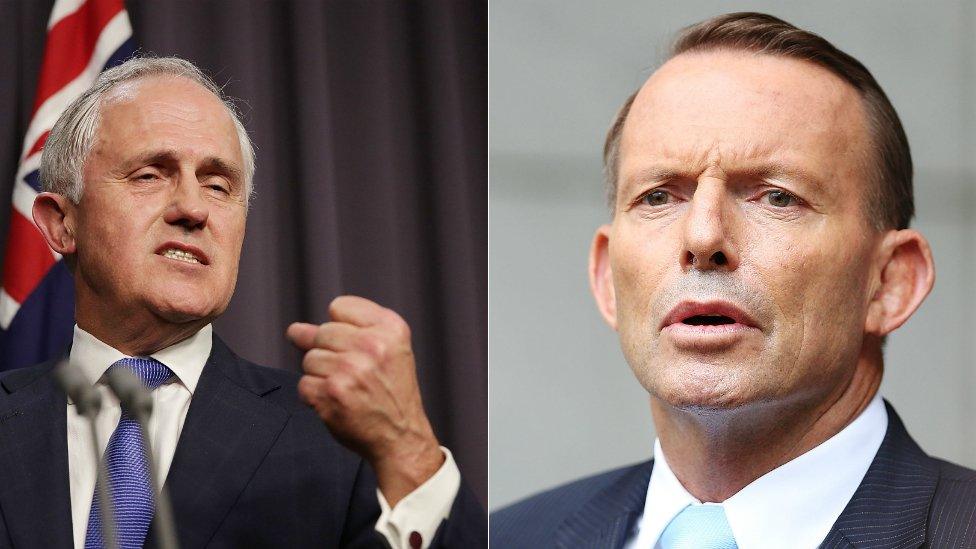
- Published14 September 2015
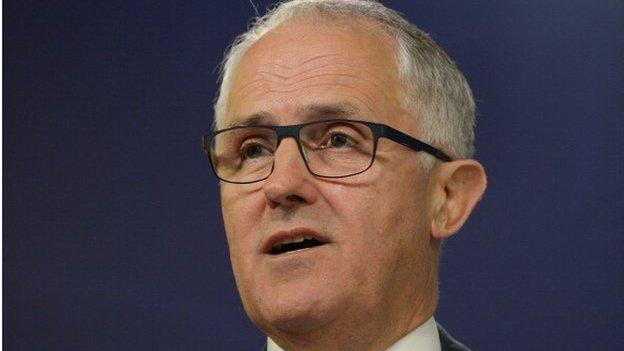
- Published17 September 2015
